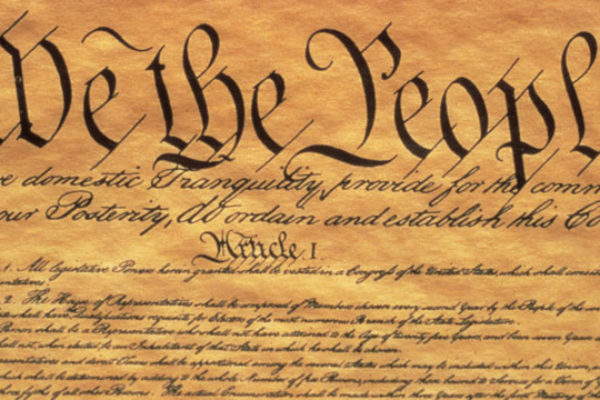President Donald Trump’s news conference in Helsinki with Russian President Vladimir Putin opened a new constitutional crisis. Trump’s statements jeopardize the territorial security of the United States and civilian control over American military and law enforcement agencies. Trump pits the White House against the rest of our government. The cost to our country will be grave because we are eroding civilian control over national security.
The U.S. Constitution is clear about the importance of protecting the “common defense” and ensuring elected officials decide on uses of government force. Every American security and law enforcement agency disagrees strongly with Trump’s assertion that Russia can be a trusted partner.
Director of National Intelligence Dan Coats, a former Republican senator from Indiana who was appointed by Trump, explained: “The warning lights are blinking red … the digital infrastructure that serves this country is literally under attack.” Coats singled out Russia as “the most aggressive foreign actor, no question.” Trump’s secretary of homeland security, Kirstjen Nielsen, later confirmed this diagnosis, pointing to continued Russian efforts to undermine the American economy and elections.
Trump has not refuted any of this evidence or offered alternative evidence, other than his statement that Putin gave him an “extremely strong and powerful” denial. “He just said it’s not Russia. I will say this: I don’t see any reason why it would be.”
The American president is taking the word of Putin above everyone else in his own government and his allies’ governments.
This presents a constitutional crisis because the U.S. agencies that keep us safe are charged to follow the president’s lead. He is, after all, commander in chief. At the same time, they are obligated to defend the country, and they are expected to act upon verified information. An order, even from the president, is illegal if it violates the values at the core of the Constitution. Ensuring the security of the United States from foreign attackers is surely one of these core values.
Trump created a terrible choice for security and law enforcement agencies after Monday’s statements: Should they listen to him and curtail their work to combat rising Russian aggression, diverting their resources to other White House priorities? Or, should they ignore the president and continue their efforts to keep our citizens safe.
So far, nearly every responsible government official has chosen safety over the president’s preferences. Even as Trump recently mused about withdrawing from the North Atlantic Treaty Organization, Secretary of Defense James Mattis assured allies of continued American support, and the U.S. military has maintained its close assistance to countries on Russia’s western border. And Dan Coats reaffirmed the intelligence community’s “assessments of Russian meddling in the 2016 election and their ongoing, pervasive efforts to undermine our democracy.”
The officials who are keeping our country safe are not directly violating presidential orders, but they are knowingly doing things the president would prefer them not to do. And Trump has created a hostile environment for them, often directly attacking their agencies and their leaders. Our country is fortunate to have so many security professionals who clearly place the national defense above their popularity with the president.
This pattern of insubordinate behavior will continue as officials must contradict the president’s stated wish to appease Russia. Our democracy is built upon a foundational commitment to make military and law enforcement agencies answer to elected officials. That is why the Constitution designates the president as commander in chief and gives Congress control over the government’s finances. Yet, our safety now depends on officials acting largely on their own. Trump’s words, ironically, encourage the attributes of an independent “deep state” that he abhors.
So what about the future? There will surely be more Russian meddling, and it will be difficult to restore the authority of elected officials over security agencies. The threat is not just an authoritarian executive; Trump is provoking disdain for democracy among those who keep us safe.
Congress must step up and restore civilian authority. Our elected representatives should not micromanage law enforcement, but they must pass strong legislation guiding action against Russia. The Constitution gives Congress, not the president, the right to declare war. That also means it has the power to stop a president’s efforts to surrender. Congress must offer our security agencies the leadership that our democracy requires.
Jeremi Suri holds the Mack Brown Distinguished Chair of Leadership in Global Affairs at The University of Texas at Austin. He is the author of “The Impossible Presidency: The Rise and Fall of America’s Highest Office.”
A version of this op-ed appeared in the Houston Chronicle, San Antonio Express News, Madison Capitol Times, Abilene Reporter News and the Austin American Statesman.
To view more op-eds from Texas Perspectives, click here.
Like us on Facebook.




